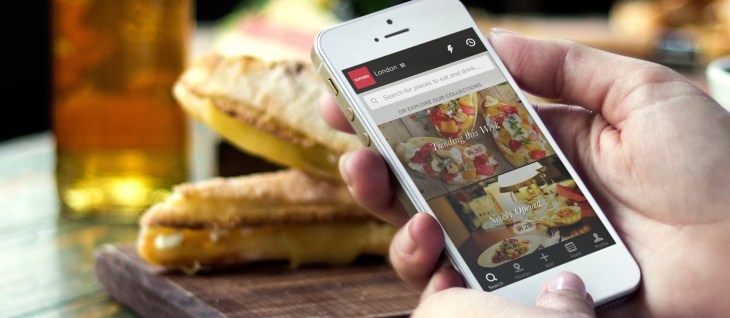Zomato, the restaurant discovery site that acquired U.S. rival Urbanspoon last month, is expanding its business into food orders, starting in its home market of India next month.
The company plans to launch a new service letting customers across India order food directly from its platform on March 16 with an initial 2,000 restaurant partners. Zomato CEO and co-founder Deepinder Goyal told TechCrunch that he expects to reach 10,000 supported restaurants nationwide within a few months of the service’s debut.
“We have a sales team of around 300 in India and 5,000-odd advertisers… these partners know the volume we bring to them so it is quite easy for us to launch this [new service],” he said.
Zomato is currently testing the service among its 500 staff in India and a handful of restaurants. The Gurgaon-based company has raised over $110 million to date — including a recent $60 million round — largely to fuel an acquisition-led international expansion, and $50 million has been allocated to develop its food delivery business in India.
There’s no immediate plan to expand food delivery to the 21 other countries where Zomato is present, but Goyal said we can expect “an aggressive roll out in other markets where we are strong” once the service is established in India. Indonesia, Australia and Dubai are likely to be among the first ports of call when the time comes, he added.
Uber For Food
Unlike traditional food on-demand services, Zomato is adopting a system that is very much like Uber. That’s to say that a restaurant has to actually manually accept each order from a Zomato user before it is processed. That’s opposed to simply passing confirmed orders from users over to restaurants as other services do.
Goyal said the company is providing iPads to restaurants, each of which is fitted with an app that essentially turns the device into an order hotline from Zomato. Interestingly, Goyal added that Zomato customers must provide a rating for each delivery experience — if they forget, they will be prompted to rate their last delivery before placing a new order. That rating will be displayed within the restaurant’s Zomato profile, alongside its order acceptance rate, to give users some guidance on a restaurant’s reliability before they order.
Zomato plans to make money from this new service via cut of each order, but the exact size of its fee will be based on feedback from customers directly. In the case of a five-star rating, Zomato will take a 7.5 percent commission fee, but that cut will rise to a maximum of 15 percent for the lowest customer feedback.
Going Beyond Restaurant Search
This is not the first time that Zomato has branched into services beyond just search — it is currently piloting an in-restaurant payment system in Dubai — nor will it be the last.
“We believe that our search business is our ticket to play to all the other [food-related] businesses that we will create,” Goyal told TechCrunch.
Beyond restaurant discovery, food on-demand and payments, Zomato is also considering the table reservation space and tackling the point-of-sale industry, the latter of which could allow users to order dishes from a table in a restaurant via the Zomato app.
“Over time, we want to be the communication layer between the restaurant and the user,” Goyal explained.
The food industry is a tricky one to enter for a number of reasons, including fierce competition, outdated I.T. systems, a dependence on offline channels, and more. But Goyal sees opportunities for the taking.
“We just started with food and we found out that there is massive unexplored depth in the market. In our early days, we thought we should get into other verticals, but over time, we figured that restaurants/food are going to be much bigger than probably any other vertical. And nobody has executed well in this space yet, so that’s what we are trying to do now,” he said.
As for competition from rivals — including Rocket Internet, which last week created a global food delivery group which includes its Just Eat business in India — the Zomato chief doesn’t appear to be losing much sleep.
“[Rivals] don’t matter a lot, none of these players have scale yet so it doesn’t worry us. When we buy into markets we pick the leader… [Rocket Internet] buys for entry, but we buy for scale,” he said.
Note: Article updated to reflect that Zomato is present in 22 global markets not 32.
